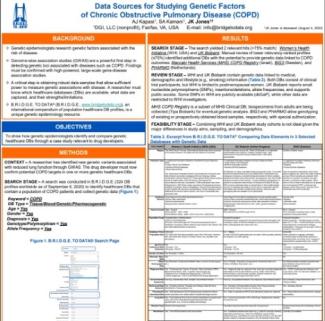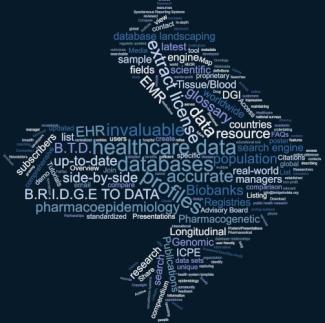25 for 25

Say goodbye to 2025 with 25% savings off your subscription this year!
(*For first-time general subscriptions
through December 31, 2025)
Benefits
Valuable resource for research
Global
Comprehensive
Structured
Timely
Access a specialized glossary
Contact our staff
Scan recent publications & administrative contacts for each database
Archive searches & create your own database collections
Search & Compare standardized profiles side-by-side
Access most up-to-date profiles verified by database managers
Identify population healthcare databases worldwide
Key Database Features
Types of databases include:
- Longitudinal EMR and claims
- Drug or disease specific cohorts
- Registries
- National surveys
- National surveillance systems
- Spontaneous reporting systems
- Tissue/Blood
- Genomic/Pharmacogenetic
~500 standardized database profiles
135 defined data fields
Profiles from 73 countries
Regularly updated
What our customers say

This "database" of databases is very useful in my day-to-day activities as it allows me to find quickly which databases will fit the best regarding the research questions I have. It is very complete and contains information on countries for which it is sometimes difficult to find information elsewhere.

The number of databases featured [in B.R.I.D.G.E. TO DATA] continues to grow at a rapid pace, and each profile is complete. This easy-to-use service gives the best snapshot information about health-related databases. It’s easy to compare databases based on numerous criteria. The B.R.I.D.G.E. staff is extremely helpful in helping you navigate the site for your specific research questions.

It is impressive that your list is getting longer. The search engine (B.R.I.D.G.E. TO DATA) is useful when a researcher gets overview of various databases at a glance.
What's new
In our latest newsletter we were thrilled to announce…
more »Our profile of Close Up’s Territorial Data (TD) (Market Sales Data Sub-National Level) for…
more »Close-Up: Territorial Data (TD) (Market Sales Data Sub-National Level) (Central America)…
more »We are delighted to announce the addition of The Swedish Dementia Registry (SveDem) …
more »






